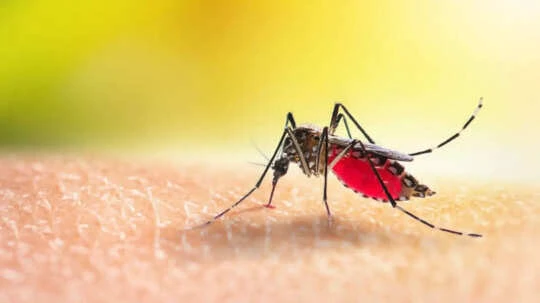It’s the monsoon season – the time when mosquitoes strike hard and bad. Known as the deadliest insects in the world, mosquitoes are transmitters of a few of the most dangerous and incurable diseases across the world.
According to experts, the rainy season is the perfect time for these vectors to breed and thrive.
A few deadly mosquito-borne diseases with no known cure include:
Chikungunya
Chikungunya is a vicious virus that spreads through mosquito bites, especially through the Aedes aegypti mosquito and Aedes albopictus mosquito. According to experts, the virus does not spread from one person to another through bodily contact or saliva, even though blood transmission may be possible.
The condition, which does not have a cure, causes symptoms like high fever and severe joint pain, which can become severe. Doctors say the name chikungunya, which means “bent over” due to the joint pain the illness is known to cause, only focuses on managing your symptoms. While most people can recover from the illness within a week, a few have lasting joint pain, and for many, it can even be fatal.
Japanese encephalitis
Japanese encephalitis is an extremely serious condition spread by mosquito bites and causes brain inflammation. Even though it is rare, encephalitis can lead to symptoms like seizures, weakness, and coma, with many patients even suffering permanent damage or death.
According to experts, Japanese encephalitis – mainly found in Asia and the western Pacific – occurs as a result of an infection and can be life-threatening, regardless of the cause. Treatment varies depending on the cause, but most people with encephalitis require hospitalisation so they can receive intensive treatment, including life support measures.
Zika virus
Zika is another virus without any cure, which you can get from certain types of mosquitoes – Aedes aegypti and Aedes albopictus. Doctors say it is transmitted through the organism that uses your cells to make more copies of itself. While most people do not know they have it or have very mild symptoms, if your immune system is weak or if you are pregnant, the virus can be deadly, as it prevents the fetus’s brain from developing properly.
It causes a very high fever, joint pain, headache, redness in the whites of your eyes, and rashes that are a mix of raised and flat red areas of skin, which can be itchy.
West Nile virus
West Nile also spreads through mosquito bites. Doctors say it is incurable and can be dangerous for many people, while a few who get infected do not show any symptoms. However, about one in five people have a high fever, headache, body aches, swollen lymph nodes, and other flu-like symptoms.
Sometimes, West Nile virus also infects your nervous system and causes serious brain or spinal cord inflammation. West Nile is named after the West Nile district of Uganda, where it was first identified.
Dengue fever
Dengue spreads from the bite of a mosquito carrying one of four types of dengue virus – DENV. Doctors say the virus is most commonly found in tropical and subtropical regions, which include Central and South America, Africa, parts of Asia, and the Pacific Islands.
While dengue is not contagious from one person to another – except when passed from a pregnant woman to their child – its symptoms, though mild initially, can be deadly if not taken care of. According to experts, dengue symptoms, such as very high fever, extreme pain behind your eyes, rashes, nausea and vomiting, and muscle and bone pain, appear four to 10 days after a mosquito bite and can last three to seven days.
